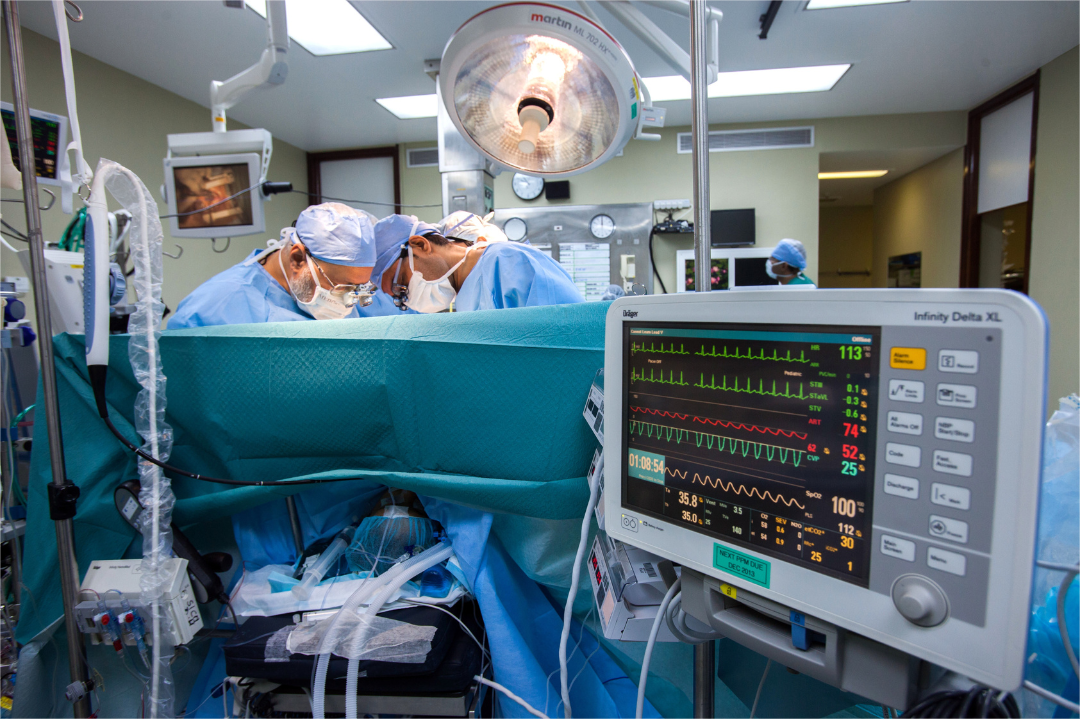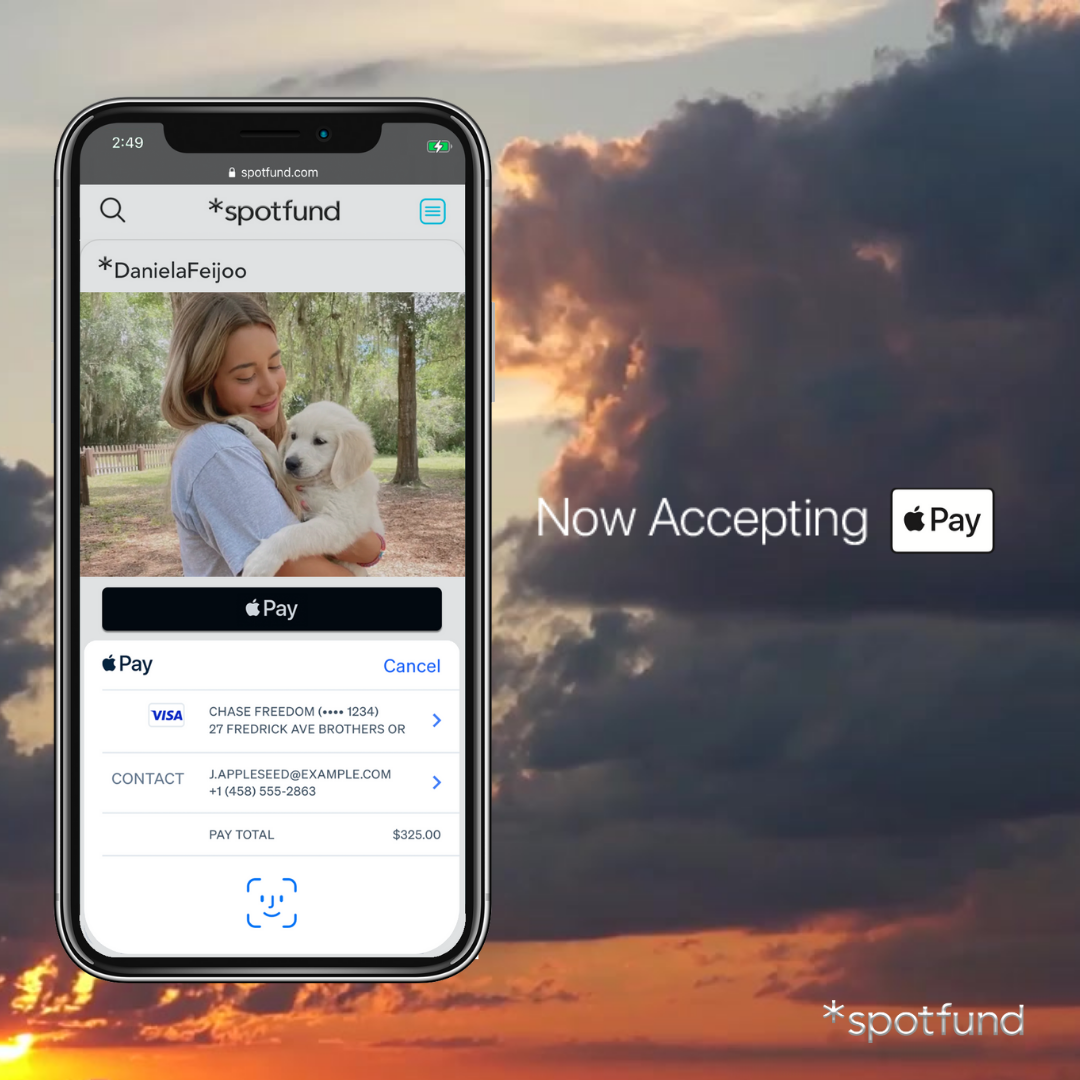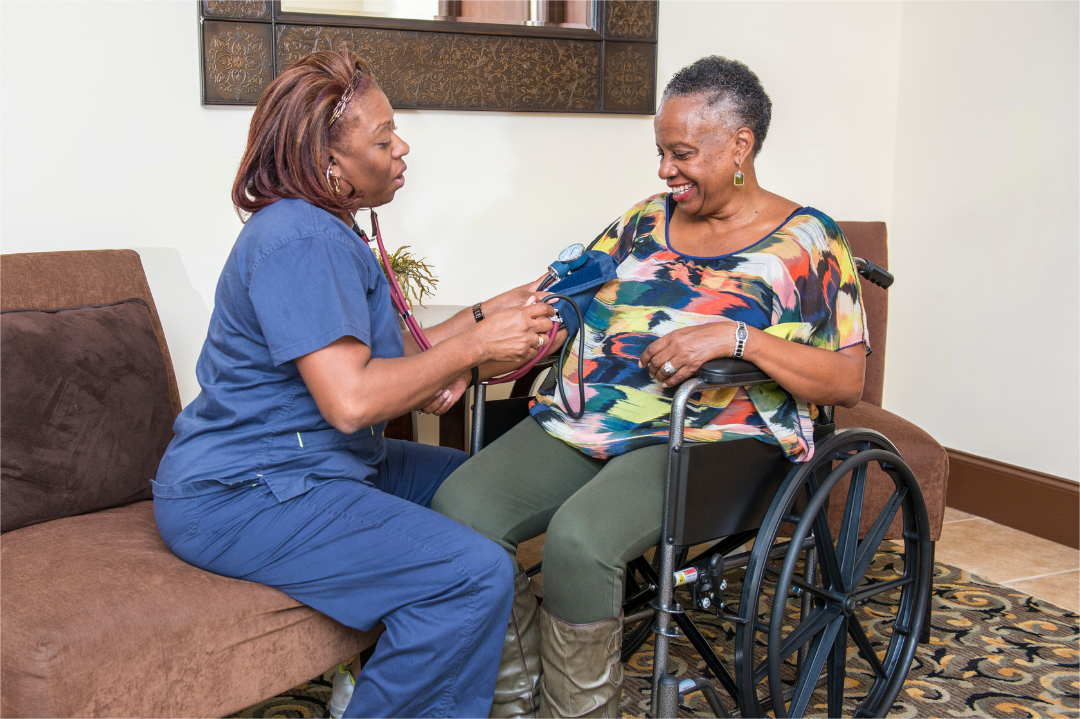In today's fast-paced and ever-evolving healthcare landscape, the financial burden of medical expenses can be overwhelming for many individuals and families. Medical fundraising has emerged as a vital lifeline, offering hope and support to those grappling with mounting healthcare costs. Whether it's to raise money to cover medical bills such as treatments for a chronic illness, a life-saving surgery, or even basic medical care, fundraising initiatives have made a significant impact in helping people raise money to access the care they need.

What is Medical Fundraising?
Medical fundraising refers to the process of raising money to cover medical expenses that an individual, family, or community might be struggling to afford. These medical and health expenses can include medical treatments, surgeries, medications, medical equipment, rehabilitation, or any other healthcare-related costs. Medical fundraising is often necessary when individuals face high medical bills, lack sufficient insurance coverage, or need to supplement existing coverage to receive proper care.
The primary objective of medical fundraising is to provide financial assistance and support to those in need, allowing them to raise money to access essential medical care and treatments without being burdened by overwhelming expenses.
Main Reasons for Medical Fundraiser
1. High Medical Costs:
Medical expenses have been steadily rising over the years, making it difficult for many individuals and families to afford even basic healthcare services. From doctor's visits and medications to surgeries and rehabilitation, high medical bills can lead to significant financial stress and may even deter people from seeking necessary care. Medical fundraising can help raise money and then alleviate this burden by providing much-needed financial assistance to cover these healthcare costs.
2. Lack of Insurance Coverage:
Many individuals lack adequate health insurance coverage, either because they are unable to access employer-sponsored plans, cannot afford private health insurance, or do not qualify for government assistance programs. In such cases, medical fundraising can be a vital resource to help cover healthcare costs and ensure that these individuals receive proper care.
3. Supplementing Existing Coverage:
Even with health insurance, there may be situations where the coverage is insufficient to fully address a person's medical needs. This can occur due to factors such as high deductibles, co-payments, out-of-pocket maximums, or coverage limitations for specific treatments or medications. In these cases, medical fundraising can help supplement existing health insurance coverage, ensuring that patients can access the necessary treatments without incurring unmanageable medical expenses.
The Importance of Medical Fundraising
In today's society, medical fundraising plays a crucial role in helping people access healthcare and cope with the financial burdens associated with medical treatment. The rising costs of healthcare, coupled with insufficient insurance coverage or lack of access to insurance, have made medical expenses a significant challenge for many. Here are some reasons that emphasize the importance of medical fundraising in today's society:
1. Bridging the Financial Gap:
Medical fundraising can fill the gap between what individuals can afford and the actual cost of medical care, ensuring that they receive the necessary treatment without experiencing financial ruin.
2. Providing Access to Life-Saving Treatments:
For many patients, especially those with rare or chronic conditions, medical fundraising can be a lifeline, enabling them to access life-saving treatments or medications that may not be covered by insurance or are too expensive to afford out-of-pocket.
3. Empowering Communities:
Medical fundraising creates a sense of community and support, as friends, family, and even strangers come together to help those in need. It encourages collective action and promotes empathy, fostering a compassionate society that values the well-being of its members.
4. Raising Awareness:
Medical fundraising campaigns often raise awareness about specific health conditions, treatment options, and the challenges faced by patients and their families. This increased awareness can lead to better understanding, advocacy, and potentially even policy changes that can positively impact the lives of many.
5. Encouraging Innovation:
By supporting patients in their pursuit of novel or experimental treatments, medical fundraising can contribute to medical research and advancements. This support can lead to the development of new therapies, benefiting not just the individual patient but also others who may be facing similar health challenges.
Types of Medical Fundraisers
1. Online Crowdfunding:
Online crowdfunding platforms have become an increasingly popular choice for medical fundraisers. Websites like *spotfund enable individuals to create medical crowdfunding campaigns, share their stories, set financial goals, and collect donations from supporters worldwide.
Pros:
-
Wide reach, as campaigns can be easily shared on social media and accessed globally.
-
User-friendly tools and templates for creating compelling campaigns.
-
Secure payment options to ensure donor trust.
Cons:
-
Platform fees or commissions may reduce the net amount raised.
-
High competition with other fundraisers on the platform.
-
Risk of fraudulent campaigns that can make donors more cautious.
However, *spotfund does not charge any platform fees for creating a compelling campaign but offers secure payment options to ensure donor trust. For example, it recently accept Apple Pay, making fundraising easier. Social media integration also allows fundraisers to reach a broader audience and maximize the chances of meeting their funding goals.
Create a medical fundraising campaign via *spotfund and share it on your social network to raise money!

2. Community Events:
Organizing community events is another effective way to raise funds for medical expenses. These events can take various forms, such as charity walks, benefit concerts, bake sales, or silent auctions. Community events not only help raise money for medical but also raise awareness about specific health conditions, garner local media attention, and foster a sense of unity and support within the community. To ensure success, event organizers should plan ahead, secure necessary permits, and promote the event through various channels, including social media, local newspapers, and community bulletin boards.
Pros:
-
Local support and increased community engagement.
-
Opportunity to raise awareness about the cause and specific health conditions.
-
Can be organized in conjunction with online crowdfunding campaigns for increased fundraising potential.
Cons:
-
Time-consuming and labor-intensive to plan and organize.
-
Limited reach compared to online platforms.
-
Dependent on local resources, weather, and other external factors.
3. Charitable Organizations:
Numerous charitable organizations and non-profit groups offer financial assistance to those struggling with medical expenses. These organizations may provide direct financial support, sponsor medical treatments, or help with related expenses, such as travel or accommodations for out-of-town treatments. Some charities focus on specific health conditions or patient demographics, while others offer more general assistance. To access support from charitable organizations, individuals typically need to apply and provide documentation of their medical needs and financial situation.
Pros:
-
Established organizations with a track record of providing financial assistance.
-
May offer additional resources, support, or services beyond financial aid.
-
No fees or commissions are taken from the funds raised.
Cons:
-
Limited availability of funds or assistance, depending on the organization's resources.
-
Lengthy application processes and strict eligibility requirements.
-
May be limited to specific health conditions or demographics.

How to Plan a Successful Medical Fundraiser?
1. Assessing the Need
Identifying the Costs:
The first step in planning a successful medical fundraiser is to identify the medical costs associated with the necessary medical care or treatments. This includes expenses such as doctor's visits, medications, surgeries, medical equipment, rehabilitation services, and any other healthcare-related costs. It's essential to be as accurate and detailed as possible when calculating these costs, as this will help set a realistic fundraising goal and ensure that the funds raised will adequately cover healthcare costs. Consult with medical professionals, research treatment costs, and consider potential future expenses to create a comprehensive financial estimate.
Evaluating Personal Resources:
Before launching a medical fundraiser, it's crucial to evaluate the individual's or family's personal resources and determine how much financial assistance they can provide towards the medical expenses. This includes examining savings, investments, assets, insurance coverage, and any other sources of income or financial support. Evaluating personal resources helps identify the financial gap between what the individual or family can afford and the total cost of medical care, which will ultimately inform the fundraising goal. Additionally, a clear understanding of personal resources will help communicate the financial need to potential donors, demonstrating the necessity of their support.
2. Setting a Realistic Fundraising Goal
After assessing the need by identifying the costs and evaluating personal resources, the next crucial step in planning a successful medical fundraiser is setting a realistic fundraising goal. This goal should be based on the financial gap between the total cost of medical care and the individual's or family's personal resources. When setting a fundraising goal, consider the following factors:
-
Be transparent about the costs and how the funds will be used, as this will help build trust with potential donors.
-
Account for any additional expenses that may arise during the course of treatment or care, such as travel, accommodations, or unexpected medical complications.
-
Consider the platform's fees or commission, if applicable, when setting the goal to ensure that the net amount raised will cover the necessary expenses.
3. Choosing the Right Platform or Method
-
Consider the specific needs and circumstances of the individual or family requiring assistance.
-
Evaluate the potential reach and impact of each platform or method.
-
Assess the amount of time and resources available for planning and managing the fundraiser.
-
Research platform fees, commissions, and any other expenses associated with each method.
-
Consult with others who have conducted successful medical fundraisers for advice and recommendations.
4. Building a Strong Support Network
A successful medical fundraiser often relies on a strong support network, which can help spread the word, generate donations, and provide emotional encouragement throughout the fundraising process.
Friends and Family:
Friends and family are often the first lines of support when it comes to medical fundraising. They can play a significant role in the success of the fundraiser by:
-
Sharing the campaign with their personal networks, extending the reach of the fundraiser.
-
Offering emotional support and encouragement to the individual or family in need.
-
Providing assistance with planning, organizing, and managing the fundraiser, including community events or online campaigns.
Local Community Groups:
Local community groups, such as churches, schools, clubs, and associations, can be valuable allies in medical fundraising efforts. These groups can help by:
-
Organizing or participating in community fundraising events, increasing local engagement and support.
-
Utilizing their networks and resources to promote the fundraiser and reach a wider audience.
-
Offering guidance, advice, and connections to other potential supporters or resources within the community.
Social Media Connections:
Social media platforms are powerful tools for amplifying the reach and impact of a medical fundraiser. By leveraging social media connections, fundraisers can:
-
Share their story and campaign with a global audience, potentially attracting support from people beyond their immediate network.
-
Utilize hashtags, groups, and communities relevant to the specific health condition or cause, connecting with others who may be interested in supporting the fundraiser.
-
Post regular updates, photos, and videos to keep supporters engaged and informed about the progress of the fundraiser and the individual's or family's situation.
5. Promoting the Medical Fundraiser
Creating a Compelling Story:
A compelling story is key to capturing the attention and empathy of potential donors. When crafting the narrative for your fundraiser, consider the following:
-
Share the personal journey and experiences of the individual or family in need, including the impact of the medical condition on their lives.
-
Clearly communicate the purpose of the fundraiser and how the funds will be used to address the financial needs.
-
Use photos, videos, and testimonials to provide a vivid and engaging portrayal of the situation.
-
Be transparent, genuine, and heartfelt in your storytelling, as this will help potential donors connect with the cause on an emotional level.
Utilizing Social Media:
Social media platforms offer powerful tools for promoting your medical fundraiser. To maximize the impact of your social media efforts, consider the following strategies:
-
Share the fundraiser across multiple platforms, such as Facebook, Twitter, Instagram, and LinkedIn, to reach a diverse audience.
-
Regularly post updates and engage with supporters, responding to comments and messages promptly to maintain their interest and foster a sense of community.
-
Encourage friends, family, and supporters to share the fundraiser with their networks, amplifying its reach.
-
Use relevant hashtags and join online communities related to the specific medical condition or cause to connect with potential donors who may have a personal interest in supporting your fundraiser.
Engaging Local Media and Influencers:
Local media outlets and influencers can play a significant role in raising awareness about your medical fundraiser and reaching a wider audience. To engage these resources effectively, consider the following approaches:
-
Craft a well-written press release outlining the key details of the fundraiser and the story behind it, and distribute it to local newspapers, radio stations, and television networks.
-
Reach out to local bloggers, podcasters, and social media influencers who may be interested in sharing your story with their followers.
-
Offer interviews, guest blog posts, or other exclusive content to media outlets and influencers, providing them with unique angles to cover your fundraiser.
-
Highlight any upcoming community events or milestones related to your fundraiser to create newsworthy opportunities for media coverage.
6. Planning and Organizing Events
Organizing fundraising events is an effective way to engage the community, raise awareness about the cause, and generate funds for the medical fundraiser. In this section, we will discuss ideas for fundraising events, tips for successful event planning, and strategies for leveraging partnerships and sponsorships.
Ideas for Fundraising Events:
There are numerous types of fundraising events that can be tailored to suit the interests and resources of your community. Some popular ideas include:
-
Charity walks runs, or bike rides
-
Benefit concerts or performances
-
Silent auctions or raffles
-
Trivia nights or game tournaments
-
Themed parties or galas
Consider the preferences and talents of your supporters, as well as the resources available in your community, when selecting the type of event to organize.
Tips for Successful Event Planning:
To ensure the success of your fundraising event, keep the following tips in mind:
-
Start planning well in advance to secure necessary permits, venues, and resources.
-
Develop a detailed budget and timeline to guide your planning process and track your progress.
-
Recruit volunteers to assist with various tasks, such as promotion, setup, and cleanup.
-
Promote the event through social media, local newspapers, community bulletin boards, and word of mouth.
-
Clearly communicate the purpose of the event and the cause it supports, encouraging attendees to donate generously.
-
Be prepared for unexpected challenges or changes, and have a backup plan in place if necessary.
Leveraging Partnerships and Sponsorships:
Partnerships and sponsorships can play a significant role in the success of your fundraising event, providing financial support, resources, or promotional assistance. To leverage these opportunities effectively:
-
Approach local businesses, organizations, or community groups that may be interested in sponsoring your event, offering them recognition and publicity in exchange for their support.
-
Seek out in-kind donations, such as food, beverages, or auction items, from local businesses or individuals who may be willing to contribute to your event.
-
Partner with other non-profit organizations or community groups to co-host the event, pooling resources and expanding your reach.
-
Network with influencers, local celebrities, or prominent community members who may be willing to endorse your event or make a guest appearance.

Enhancing Medical Fundraising Success with Proven Strategies
In conclusion, medical fundraising plays a critical role in supporting individuals and families facing financial challenges due to medical expenses. By understanding the nuances of medical fundraising, assessing financial needs, setting realistic goals, choosing the right platform, building a support network, promoting the fundraiser, and planning successful events, fundraisers can make a significant difference in the lives of those in need.
As you embark on your medical fundraising journey, consider using *spotfund as your platform of choice. It is a user-friendly and powerful platform designed to help you raise money for your medical cause. With its easy-to-use interface, secure payment options, and social media integration, Spotfund can help you reach your fundraising goals more efficiently and effectively.
Create a fundraising campaign to raise money for medical causes via *spotfund!

